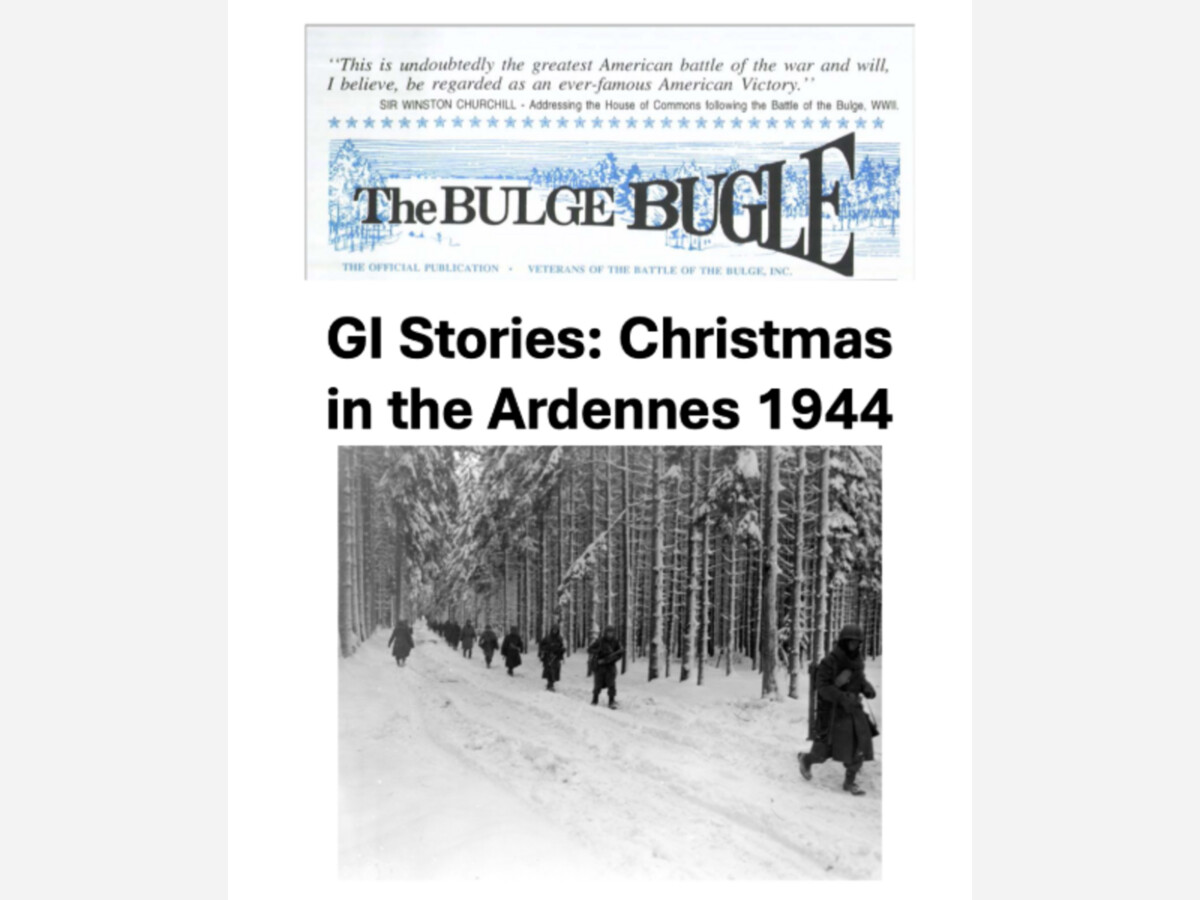Image


The official title of the battle strategy was Ardennes Offensive, a reference to the battle location in The Ardennes a dense forest area encompassing Belgium, Luxembourg, and Germany.
It was a surprise attack, on 12/16/44 by the Germany Army but by the time the battle was concluded it was the beginning of the end for the German Army. The Adrennes was a dense forest and a "rest area" for the American Army. However, it was Sir Winston Churchill who described it as "the greatest American battle of the war”. The U.S. Army details, on their website, the battle was 6 months after the success of the invasion of Normandy. Battle of the Bulge | The United States Army
After a day of hard fighting, the Germans broke through the American front, surrounding most of an infantry division, seizing key crossroads, and advancing their spearheads toward the Meuse River, creating the projection that gave the battle its name.
Stories spread of the massacre of Soldiers and civilians at Malmedy and Stavelot, of paratroopers dropping behind the lines, and of English-speaking German soldiers, disguised as Americans, capturing critical bridges, cutting communications lines, and spreading rumors. For those who had lived through 1940, the picture was all too familiar. Belgian townspeople put away their Allied flags and brought out their swastikas. Police in Paris enforced an all-night curfew. British veterans waited nervously to see how the Americans would react to a full-scale German offensive, and British generals quietly acted to safeguard the Meuse River's crossings. Even American civilians, who had thought final victory was near were sobered by the Nazi onslaught.
Edit - added:
During its four-week course, more than 1 million soldiers fought the battle: some 500,000 Americans, 600,000 Germans and 55,000 British. Each side lost more than 800 tanks, and the Germans lost 1,000 aircraft.
On Dec. 22, Hitler sent a message to the acting commander of the 101st Airborne Division in Bastogne, U.S. Maj. Gen. Anthony McAuliffe, calling for his surrender. Despite being outnumbered and surrounded, McAuliffe made his now- famous response to Hitler's request: "Nuts!"
British Prime Minister Winston Churchill later called the victory at the Battle of the Bulge one of the greatest of the war.
But that victory came at a tremendous cost, with the toll severe on both sides of the Atlantic. About 19,000 U.S. soldiers died, and 47,500 were wounded and more than 23,000 missing. The British suffered 1,400 casualties with 200 killed. And the Germans had 100,000 soldiers killed, wounded or captured.
The Battle of the Bulge Association® has a number of stories related to the battles, as well as a collected booklet of Christmas stories of Bulge veterans. Christmas Gift: Bulge Christmas Memories | Battle of the Bulge Association®
The common denominator of memory for Bulge veterans was the relentless, unforgiving cold. The bone-chilling cold that sank into your soul. The 24/7 losing battle to keep your feet dry. The impossibility of digging a foxhole. Wearing every scrap of clothing you could dig up and still being cold. The fear of frostbite and trench foot.